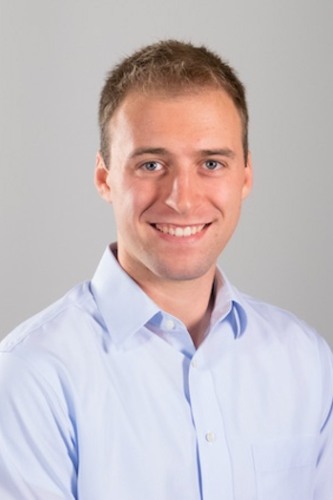
Robert Zielinski
Biography
Why did you choose the Brown University School of Public Health?
One of the primary reasons I chose to come to Brown was because of the interdisciplinary, highly collaborative environment the University encourages. Biostatistics is fundamentally an interdisciplinary field, and I knew I would benefit from the opportunities to collaborate with experts in statistics, applied math, computer science, medicine, and other areas of public health throughout the University. I was also impressed by Brown’s commitment to student development. Brown offers plenty of opportunities to gain experience in research, teaching, and industry depending on my career goals, as well as the flexibility to take advantage of those opportunities.
What makes Brown's program different from other programs you considered?
The aspect of Brown’s program that stands out the most to me is the amount of support available to students. Our cohorts are quite small relative to the number of faculty, meaning that classes are small, professors know the students well, and it is very easy to get help when you need it. The high faculty-to-student ratio also made it easy for me to get involved in research that I am interested in — there is no fighting for funding or competition to be placed with a certain professor. For me, the program at Brown has been a perfect mixture of rigor and mentorship that has allowed me to get the most out of the opportunities available here.
What do you enjoy most about your program?
My favorite aspect of my program is the welcoming, supportive culture of the Biostatistics department and the greater University. It is clear that the faculty and staff in the department genuinely care about the students and their success in the program and beyond. I have also had the pleasure of making friends with a number of fascinating people who are always teaching me new things or getting me to think about ideas in a new way.
What is your academic area of interest and why?
From a statistical perspective, my current interests focus on manifold learning, or nonlinear dimension reduction techniques. I am particularly interested in applying these techniques to the analysis of medical imaging data, specifically neuro-imaging data. I believe that this work could have important implications for how we understand the progression of neurodegenerative conditions like Alzheimer’s and Parkinson’s diseases.
What are your postgraduate goals/plans?
My tentative plan is to pursue a career in the pharmaceutical or biotechnology industries.
Why Providence?
Providence is a small city with attractions for nearly any interest and without the hassles of living in a much bigger city. From a public health perspective, there are lots of opportunities in Providence, with many professors having collaborations with the state of Rhode Island or the nearby hospitals. Recreationally, there is an outstanding food scene here, and while I didn’t come to Providence as a foodie, I’m sure I’ll be one by the time I graduate. RISD has an excellent art museum with free admission for Brown students, and there are some activities like WaterFire or gondola rides on the Providence River that I’ve never experienced elsewhere. I particularly love how walkable everything is, and running or biking along the water is a treat in the summer and fall. A little further away, the beaches of Narragansett or Newport are within a 45-minute drive, and the Red Sox have $9 ticket specials for students an hour away in Boston.
What advice would you give to a prospective applicant?
Be honest with yourself about what is most important to you and choose a program that aligns with those priorities. It is easy to get caught up in rankings or other assessments of a program’s reputation, but realistically those overlook many important considerations and won’t matter anywhere near as much as your day-to-day experience. For each program you are looking at, I would think about the following questions:
- Do your research interests align with the work being done in the department?
- Is the program funded, and will the stipend be enough to live on? Will you need to jump through hoops to get funding?
- How long does it take students to graduate, and how many end up dropping out of the program?
- What are the most common career outcomes both immediately after graduation and a few years out, and do they align with your goals?
- Will you be happy living in X location?
Remember that you have a life outside of academics and think about how you will be able to continue with some activities you enjoy. Finally, don’t be afraid to reach out to current students to get a better sense of what life is like in the program!